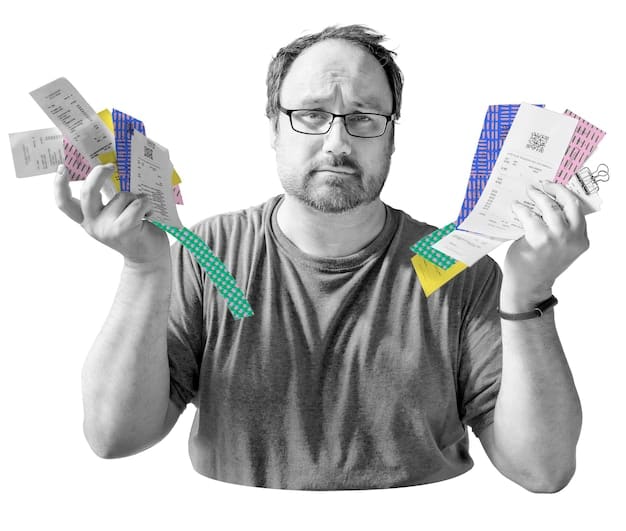Negotiating with Creditors: Expert Tips to Reduce Debt by 15%

Negotiating with creditors to reduce your debt involves understanding your financial situation, communicating effectively, and proposing realistic repayment plans, potentially lowering your debt by 15% or more through strategic negotiation tactics and exploring options like debt consolidation or settlement.
Facing overwhelming debt can feel daunting. However, **negotiating with creditors: insider tips to lower your debt by 15% or more** is a viable path toward financial relief. By understanding the negotiation process and employing effective strategies, you can potentially reduce your debt burden and regain control of your finances.
Understanding Your Debt and Creditor Landscape
Before diving into negotiations, it’s crucial to have a clear picture of your financial situation and the creditors you’re dealing with. This foundational knowledge will empower you to approach negotiations from a position of strength and clarity.
Assessing Your Financial Situation
Start by compiling a comprehensive list of all your debts, including the outstanding balance, interest rate, and minimum monthly payment for each account. Next, evaluate your income, expenses, and any assets you possess. This in-depth review will provide a realistic understanding of your ability to repay your debts.
Knowing Your Creditors
Different creditors may have varying levels of flexibility in negotiations. Research the types of creditors you’re dealing with – are they credit card companies, banks, collection agencies, or other lenders? Understanding their motivations, policies, and typical negotiation strategies can help you tailor your approach for maximum effectiveness.
- Prioritize high-interest debts to minimize long-term costs.
- Categorize debts by creditor type for targeted negotiation strategies.
- Understand collection agency tactics and rights to protect yourself.
Thoroughly understanding your financial situation and your creditors is the bedrock of successful debt negotiation. It allows you to craft realistic proposals and anticipate potential responses from lenders.

Preparing for the Negotiation Process
Effective preparation is essential for successful debt negotiation. Gather all necessary documentation, research your options, and develop a clear negotiation strategy to increase your chances of achieving a favorable outcome.
Gathering Relevant Documentation
Creditors will likely require supporting documentation to verify your financial hardship. Gather copies of your income statements, bank statements, tax returns, and any other documents that demonstrate your current financial situation. Having these documents readily available will streamline the negotiation process and demonstrate your seriousness.
Exploring Your Negotiation Options
Familiarize yourself with the various debt negotiation strategies available, such as negotiating a lower interest rate, reducing the principal balance, or establishing a manageable repayment plan. Consider options like debt consolidation or debt settlement. Research the potential benefits and drawbacks of each approach to determine which best suits your individual circumstances.
- Document all communication with creditors meticulously.
- Research debt relief programs offered by non-profit organizations.
- Consult with a financial advisor to understand your credit score impact.
By diligently gathering documentation and meticulously exploring your negotiation options, you build a solid foundation for a successful debt negotiation strategy. This preparation demonstrates your commitment and increases your chances of achieving a beneficial outcome.
Effective Communication Strategies
Communicating effectively with your creditors is crucial for achieving a successful negotiation. Maintain a professional and respectful tone, clearly articulate your financial challenges, and be prepared to support your claims with evidence.
Maintaining a Professional Tone
Even when facing stressful financial circumstances, it’s essential to maintain a professional and respectful demeanor when communicating with creditors. Avoid getting defensive or emotional. A calm and respectful approach will foster more productive discussions and increase the likelihood of a positive outcome.
Clearly Articulating Your Challenges
Clearly and concisely explain the reasons behind your financial hardship. Be honest about your income, expenses, and any unforeseen circumstances that have impacted your ability to repay your debts. Provide specific examples to illustrate the challenges you’re facing and how they affect your ability to meet your financial obligations.
Effective communication is key in debt negotiation. Always keep a record of your conversations and try to back up any requests you make with solid documentation. Remaining professional and honest is also essential, since it demonstrates that you are attempting to resolve the issue in good faith.
Negotiation Tactics That Work
Employing effective negotiation tactics can significantly improve your chances of reducing your debt. Understand your leverage, propose realistic settlements, and be prepared to negotiate strategically.
Understanding Your Leverage
Creditors want to avoid the cost and uncertainty of taking legal action to recover debts. Understand that you possess a certain degree of leverage in the negotiation process. If you can demonstrate that you are genuinely struggling to repay your debts and are willing to work towards a mutually agreeable solution, creditors may be more open to negotiation.
Proposing Realistic Settlements
Based on your financial assessment, propose a settlement offer that is realistic and sustainable. This could involve offering a lump-sum payment for a reduced amount, or establishing a manageable repayment plan with lower monthly payments. Ensure that your proposal is within your financial means and that you can realistically adhere to the agreed-upon terms.
- Always get any settlement agreement in writing.
- Be willing to compromise but know your bottom line.
- Consider offering a percentage of the total debt.
By understanding and using effective negotiation strategies, you may greatly increase your chances of obtaining favorable terms on your debts. Keeping calm, analyzing your alternatives, and being persistent are all beneficial.
Exploring Debt Relief Options
Besides direct negotiation, explore other debt relief options that may be available to you. Consider debt consolidation, credit counseling, and debt management plans as potential alternatives or supplements to direct negotiation.
Debt Consolidation
Debt consolidation involves combining multiple debts into a single, more manageable loan with a lower interest rate. This can simplify your payments and potentially save you money on interest charges. Explore debt consolidation options such as personal loans, balance transfer credit cards, or home equity loans.
Credit Counseling and Debt Management Plans
Non-profit credit counseling agencies offer valuable resources and support for individuals struggling with debt. They can provide budget counseling, debt management plans, and educational workshops to help you regain control of your finances. Debt management plans typically involve making monthly payments to the agency, which then distributes the funds to your creditors according to an agreed-upon schedule.

Exploring debt alleviation choices in addition to negotiating directly can give you with a more comprehensive strategy for regaining your financial standing. Make sure you know the conditions of each choice and how they might affect your credit.
Maintaining Financial Stability After Negotiation
Successfully negotiating a debt settlement is just the first step. It’s essential to implement strategies for maintaining long-term financial stability and preventing future debt accumulation.
Creating a Budget and Sticking to It
Develop a detailed budget that outlines your income, expenses, and savings goals. Track your spending diligently and identify areas where you can cut back. Sticking to a well-defined budget will help you avoid overspending and build a financial cushion for unexpected expenses.
Building an Emergency Fund
An emergency fund can provide a safety net to protect you from future debt accumulation. Aim to save at least three to six months’ worth of living expenses in a readily accessible account. This will help you cover unexpected costs without resorting to credit or taking on new debt.
- Monitor your credit report regularly for errors.
- Avoid unnecessary debt accumulation by making smart financial choices.
- Seek ongoing financial education to improve your financial literacy.
Debt talks may be difficult, but with the correct approach and ongoing dedication, you can reach an arrangement that works for you and your creditors. Remember to remain patient, persistent, and focused on your long-term financial objectives.
| Key Point | Brief Description |
|---|---|
| 📊 Assess Finances | Evaluate income, debts, and assets for a clear financial picture. |
| 📝 Gather Documents | Collect income statements, bank records, and tax returns. |
| 🤝 Negotiate Terms | Propose manageable payment plans or reduced balances. |
| 🛡️ Protect Finances | Build an emergency fund and manage spending post-negotiation. |
FAQ Section
▼
Before contacting creditors, understand your debt situation by listing all debts, interest rates, and minimum payments. Also, assess your income and expenses to determine how much you can realistically afford to pay.
▼
If a creditor refuses to negotiate, explore other options like debt consolidation, credit counseling, or debt management plans. You can also consult with a legal expert for advice on your rights and options.
▼
Debt negotiation can negatively affect your credit score, especially if it involves settling for less than the full amount owed. However, it’s often better than defaulting or declaring bankruptcy. Monitor your credit report closely.
▼
Negotiating on your own can save money on fees, and hiring a professional may be useful if you lack negotiating experience. Consider your comfort level and the complexity of your debts when deciding.
▼
Have your financial documents like income statements, bank statements, tax returns, and a list of all your debts. These details demonstrate your current financial shape and what you can afford to offer the creditors.
Conclusion
Successfully **negotiating with creditors: insider tips to lower your debt by 15% or more** requires careful preparation, effective communication, and a commitment to long-term financial stability. By understanding your debt, exploring your options, and employing proven negotiation strategies, you can potentially reduce your debt burden and regain control of your financial future.





